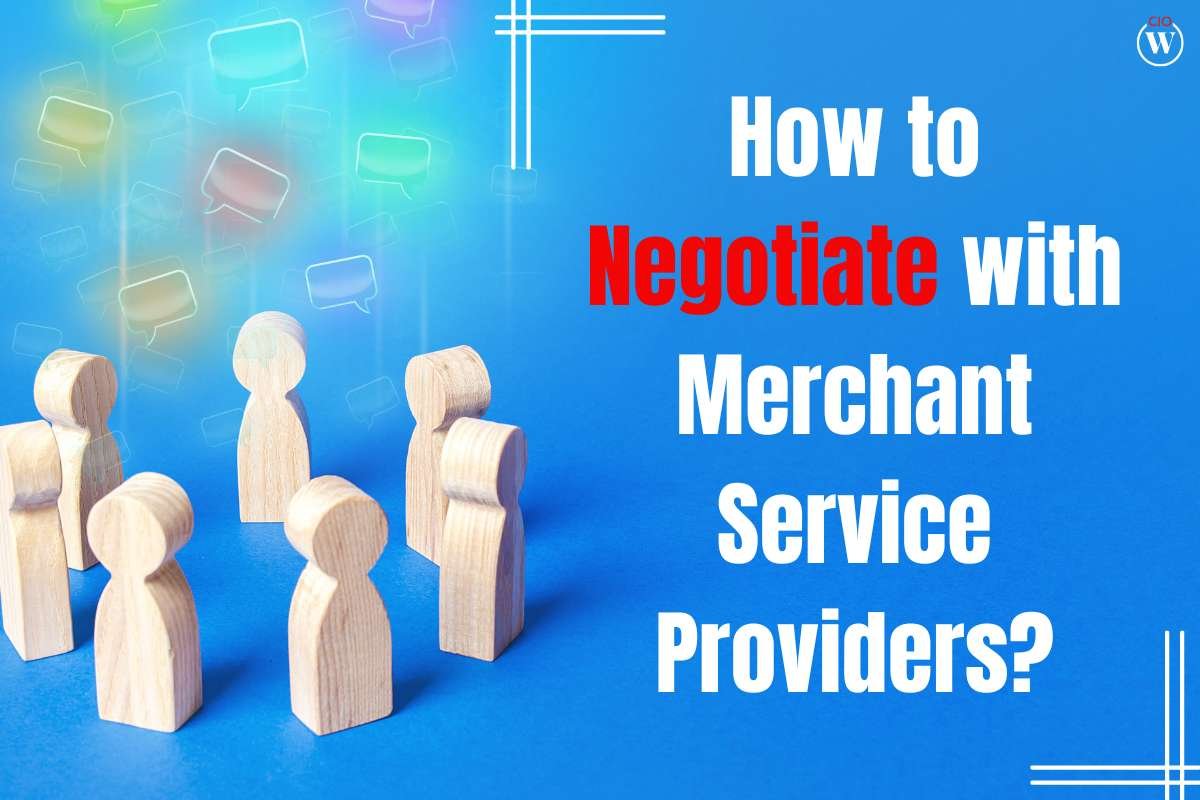Merchant service providers are third-party companies that offer payment processing services to businesses. They play a critical role in facilitating the exchange of funds between a customer’s bank account and a merchant’s account. The services provided by merchant service providers include processing credit and debit card transactions, managing payment gateways, and ensuring secure data storage.
If you’re a business owner, negotiating with merchant service providers can be challenging, especially if you’re not familiar with the technical aspects of payment processing. In this article, we’ll discuss some strategies you can use for negotiating with merchant service providers.
Understanding the Merchant Services Industry
Before you start negotiating with merchant service provider, it’s essential to understand the industry’s basics. This will help you avoid confusion and ensure that you negotiate a deal that works for your business. Merchant service providers operate in a complex and competitive market. They offer various payment processing solutions, each with different pricing structures, fees, and features.
There are three primary players in the merchant services industry:

- Payment Processors: These companies are responsible for processing and settling transactions. They work with card networks like Visa, Mastercard, and Discover to ensure that payments are authorized and processed quickly.
- Payment Gateways: Payment gateways act as a bridge between the payment processor and the merchant’s website or point of sale system. They enable the secure transmission of payment information between the customer and the payment processor.
- Independent Sales Organizations (ISOs): ISOs are third-party companies that sell and service payment processing solutions on behalf of payment processors. They act as intermediaries between the merchant and the payment processor, handling tasks such as underwriting, account management, and customer support.
Understanding the Fees and Pricing Structures
Merchant service providers use a variety of pricing structures, fees, and add-ons to generate revenue. It’s crucial to understand these fees and structures to ensure that help you for negotiating with merchant service providers. The following are some of the common fees and pricing structures:
- Interchange Fees: These are fees charged by the card networks for processing transactions. They typically range from 1.5% to 3.5% of the transaction amount.
- Processor Markup: This is the fee charged by the payment processor for their services. The markup varies depending on the provider and can range from 0.15% to 0.5% of the transaction amount.
- Payment Gateway Fees: These are fees charged by the payment gateway provider for their services. They can range from $0.10 to $0.50 per transaction.
- Monthly Fees: Many merchant service providers charge a monthly fee for their services. This fee can range from $10 to $50 per month.
- Chargeback Fees: These are fees charged when a customer disputes a transaction, and the merchant is required to refund the payment. Chargeback fees can range from $20 to $50 per incident.
- Early Termination Fees: Many merchant service providers require merchants to sign a contract for a set period, typically one to three years. If a merchant terminates the contract early, they may be charged a termination fee, which can range from $150 to $500.
Strategies for negotiating with merchant service providers;

Know Your Business’s Needs: Before you start negotiating with merchant service provider, it’s essential to know your business’s payment processing needs. You need to identify your average transaction volume, the types of payment methods you want to accept, and your budget for payment processing fees. Armed with this information, you’ll be in a better position to negotiate a deal that works for your business.
1. Shop Around:
It’s always a good idea to shop around and compare offers from different merchant service providers. This will give you a better understanding of the pricing structures, fees, and features offered by different providers. You can use online comparison tools to get quotes from multiple providers and compare them side-by-side helps you for negotiating with merchant service providers.
2. Negotiate Fees and Rates:
Once you’ve identified a merchant service provider that meets your business needs, it’s time to negotiate fees and rates. You can negotiate lower rates and fees by leveraging your business’s transaction volume, longevity, and creditworthiness. You can also negotiate a waiver or reduction of some fees, such as the monthly fee or early termination fee. It’s essential to be assertive in your negotiations but also reasonable and realistic.
3. Review the Contract:
Before signing a contract with a merchant service provider, it’s crucial to review the terms and conditions carefully. Make sure you understand the fees, rates, and any other conditions that may affect your business. You should also look out for any hidden fees or clauses that may be detrimental to your business. If you’re unsure about any of the terms, seek legal advice before signing the contract.
4. Consider the Payment Gateway:
Payment gateways play a crucial role in the payment processing ecosystem. They enable secure transmission of payment information between the customer and the payment processor. When negotiating with merchant service provider, it’s essential to consider the payment gateway they offer.

You should ensure that the payment gateway is reliable, secure, and compatible with your business’s website or point-of-sale system. You should also consider the payment gateway fees, as they can add up quickly, especially for businesses with a high transaction volume.
5. Look for Value-Added Services:
Merchant service providers offer a variety of value-added services, such as fraud prevention, chargeback management, and reporting tools. These services can help streamline your business operations and enhance customer experience. When negotiating with a merchant service provider, it’s essential to inquire about the value-added services they offer and their pricing. You should evaluate these services based on their relevance to your business and their impact on your bottom line.
6. Be Prepared to Walk Away:
If you’re not satisfied with the terms offered by a merchant service provider, be prepared to walk away. There are many providers in the market, and you’re likely to find one that meets your needs and budget. Don’t be pressured into signing a contract that doesn’t work for your business.
Bottom line
Negotiating with merchant service providers can be challenging, but it’s essential to ensure that your business gets the best deal. By understanding the industry’s basics, fees, and pricing structures, you’ll be in a better position to negotiate effectively.
It’s crucial to know your business’s needs, shop around, negotiate fees and rates, review the contract, consider the payment gateway, look for value-added services, and be prepared to walk away if necessary. With these strategies, you can negotiate a payment processing deal that works for your business and helps you achieve your goals.









